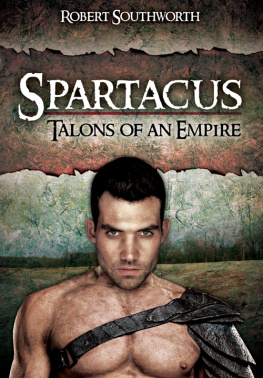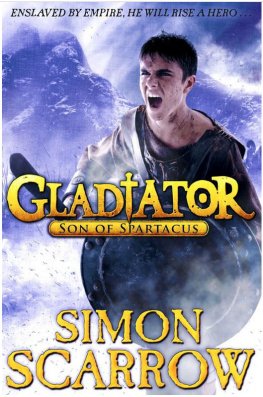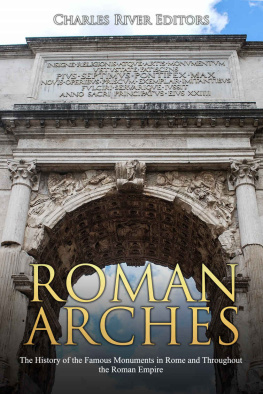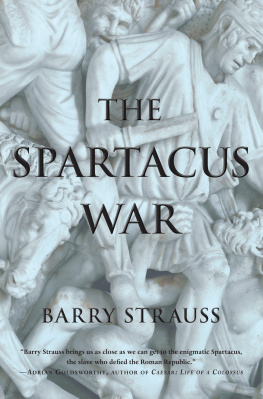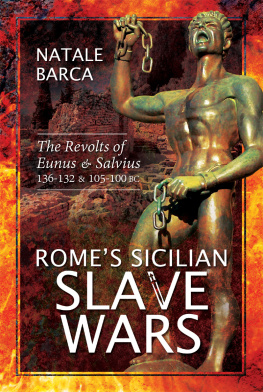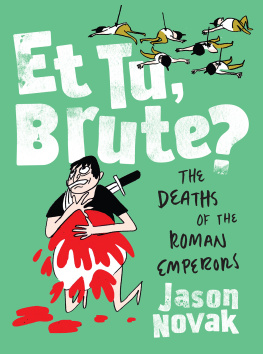
First published in Great Britain in 2012 by
CLAYMORE PRESS
An imprint of
Pen & Sword Books Ltd
47 Church Street
Barnsley
South Yorkshire
S70 2AS
Copyright R C Southworth, 2012
9781781590843
ISBN 9781781599822 (epub)
ISBN 9781781599822 (prc)
The right of R C Southworth to be identified as Author of this work has
been asserted by him in accordance with the Copyright, Designs and
Patents Act 1988.
A CIP catalogue record for this book is
available from the British Library
All rights reserved. No part of this book may be reproduced or
transmitted in any form or by any means, electronic or mechanical
including photocopying, recording or by any information storage and
retrieval system, without permission from the Publisher in writing.
Printed and bound in England
By CPI Group (UK) Ltd, Croydon, CRO 4YY
Pen & Sword Books Ltd incorporates the Imprints of Claymore Press, Pen & Sword Aviation, Pen & Sword Family History, Pen & Sword Maritime, Pen & Sword Military, Wharncliffe Local History, Pen & Sword Select, Pen & Sword Military Classics, Leo Cooper, Remember When, Seaforth Publishing and Frontline Publishing
For a complete list of Pen & Sword titles please contact
PEN & SWORD BOOKS LIMITED
47 Church Street, Barnsley, South Yorkshire, S70 2AS, England
E-mail:
Website: www.pen-and-sword.co.uk
For my parents, no son could ask more of those that love him.
Prologue
The year was 73 BC and the Roman Empire was beginning to gather momentum. Its navy dominated the trading routes of the Mediterranean, while its legions began to look hungrily at neighbouring lands. The empire required land, wealth and slaves, commodities which they had in abundance but they still yearned for more. A third of the great city of Rome were enslaved but still they wanted more, the backs of slaves carried the aspirations of a great empire. Many of those slaves were sold into the ludus - gladiator schools. Here they would learn the art of warfare and become lethal killers. Many would die in the arena and all for the entertainment of the masses. Their masters became rich and cared nothing for the loss of blood, dignity and life. However, just 100 miles to the south of the great city stood Capua, a prosperous trading city eager to match the splendour of Rome. It was within this city the first blow would be struck for the slaves of the Roman Empire, a blow which would shake the very foundations of Rome.
Batiatus had been away, the slave markets had disappointed him again. He prayed that the Roman legions would soon go to war and bring new blood to the slave markets. He needed to stay ahead of his competitors. Luckily both Spartacus and Crixus were the envy of his peers. They filled his purse with coin but he knew sooner or later they would fall. If he just had a few more like them, his name would begin to be whispered in Rome itself. He entered his home and went straight to the balcony to observe the training area. It was dark and no gladiators would be there, but he liked to survey his own little empire. He spied a slave who had been castrated and hung on the wall to serve as a lesson to his comrades. Batiatus would not permit insolence and those who would try to escape would pay the ultimate price. He smiled as he looked at the corpse, bemused as to why the man should even try. Did he not look after them? They wanted for nothing and this was how they repaid a generous master. From the corner of his eye he saw an object, partly lit by the dim torches which circled the training ground. He tried to focus on it, trying hard to decipher its unusual form. As he did his hand moved on the rail, recoiling immediately from a sticky substance. The object's true form now announced itself to his mind, a body and then another and another. He raised his hand to his face and dark blood covered his pale skin. Panic gripped his insides, the urge to run matched only by his urge to find his family. He backed from the balcony into the safety of the main building.
Crixus slaughtered the children as though they were vermin. He held all Romans accountable for the death of his family and his enslavement, whether they were young or old. Spartacus turned away from the carnage in disgust, he wanted no part of these actions. He wanted to run, to protect his own wife and children but there was safety in numbers and he knew that staying with the gladiators afforded him the best chance of procuring passage to a distant land. He walked from the slaughter, bile rising in his throat. He needed to put as much distance between himself and the terror he had just witnessed. He reached an isolated room only for that isolation to be interrupted by a panic stricken Batiatus backing into it. Spartacus stopped still but it was too late, Batiatus turned and confronted him.
What have you done to my family? Batiatus part asked, part screamed.
They are dead, Spartacus replied. Though he did not wish their death, he had only hatred for this man and refused to feel pity.
Bastards! I will have every one of you torn to pieces, starting with your family, Batiatus ranted with insanity. The look of insanity changed to surprise as a gladius ripped through his torso, spilling his insides to the floor. Above him stood Spartacus, defiance radiating from every sinew
You will not harm my family anymore, he said, his blade sweeping down, puncturing the throat of his master.
The rebellion had begun, tens of men became thousands and then tens of thousands. Slaves throughout Roman lands rallied to the banner, eager to cast off the yoke of slavery. Rome was slow to react believing slaves incapable of forming a proper army, considering it at first just a local policing matter. However, a gladiator rose from the ranks to command. His skill in the arena would be matched by his skill to mobilise an entire army and Rome would pay the price for its slumber. Spartacus became the bringer of nightmares, Roman towns burned and Roman soldiers died in their hundreds. Rome had faced aggression before, mighty empires wishing to invade and take their precious lands but this was new, the enemy was from within and Rome stuttered in its response.
For two years the slave army made Roman lands bleed. For a while the plebs of Rome even believed the great city might fall. Finally the Roman senate were forced to act, legions were recalled to deal with the internal beast which had the citizens of Rome trembling in their beds. Two armies were dispatched to deal with the threat and these were not raw recruits but veterans made tough on the battlefields of the known world. From the south came Crassus, a political genius intent on winning military glory. From his campaign in Spain came Gnaeus Pompeius Magnus known as Pompey the Great, the best Rome had, a general used to victory. Each army raced to gain glory and the slave army was trapped. With no possibility of escape they turned to face the legions of Crassus in one last show of force against a cruel master. Spartacus had little choice but to fight but he could not battle both Roman armies at the same time. With so many of his warriors dead, including the mighty Crixus, Spartacus resigned himself to the fates. He gathered his army about him and as the legions approached the slave army roared its defiance. Vengeance and wrath clashed against perfect military precision.
Chapter 1
The orders were shouted and troops began to move and so the battle had commenced. On one side the experienced troops of the Roman legions moved in step. Ever onwards they closed the gap between themselves and the horde. The perfect rhythm of thousands of perfectly drilled professional soldiers moving in unison was a fearful sound, so much so it sapped the will of many opposing armies long before the violence erupted. The Roman legions were commanded by Crassus an extremely powerful figure within Roman politics but, as yet, untried as a military commander. He had chased this slave army around the countryside and they had evaded him at each step. However, with a further Roman Army approaching from the north under the control of Pompey, the slave army was now trapped and Crassus wanted victory before Pompey arrived to steal away his glory.
Next page
